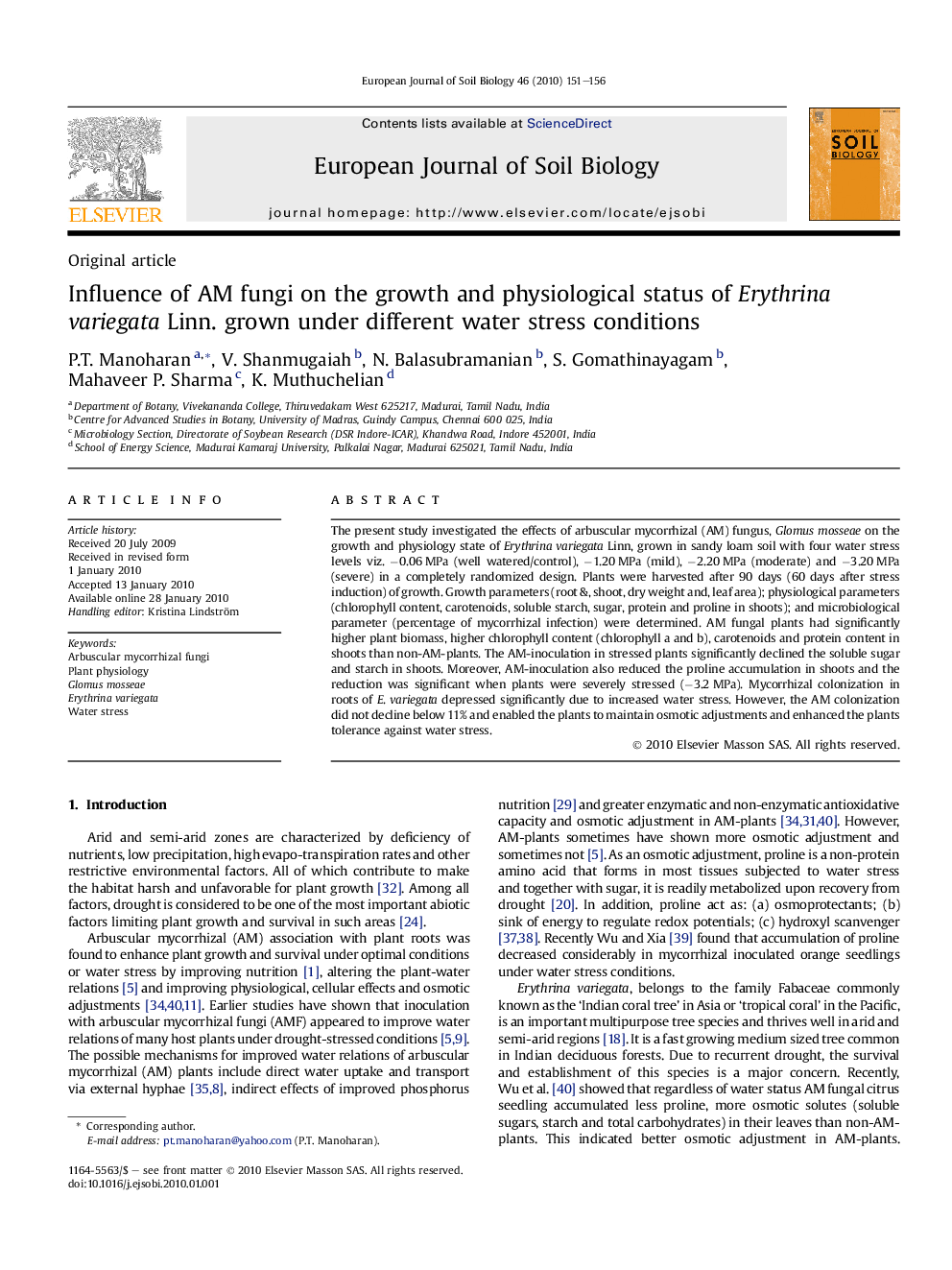| Article ID | Journal | Published Year | Pages | File Type |
|---|---|---|---|---|
| 4392157 | European Journal of Soil Biology | 2010 | 6 Pages |
The present study investigated the effects of arbuscular mycorrhizal (AM) fungus, Glomus mosseae on the growth and physiology state of Erythrina variegata Linn, grown in sandy loam soil with four water stress levels viz. −0.06 MPa (well watered/control), −1.20 MPa (mild), −2.20 MPa (moderate) and −3.20 MPa (severe) in a completely randomized design. Plants were harvested after 90 days (60 days after stress induction) of growth. Growth parameters (root &, shoot, dry weight and, leaf area); physiological parameters (chlorophyll content, carotenoids, soluble starch, sugar, protein and proline in shoots); and microbiological parameter (percentage of mycorrhizal infection) were determined. AM fungal plants had significantly higher plant biomass, higher chlorophyll content (chlorophyll a and b), carotenoids and protein content in shoots than non-AM-plants. The AM-inoculation in stressed plants significantly declined the soluble sugar and starch in shoots. Moreover, AM-inoculation also reduced the proline accumulation in shoots and the reduction was significant when plants were severely stressed (−3.2 MPa). Mycorrhizal colonization in roots of E. variegata depressed significantly due to increased water stress. However, the AM colonization did not decline below 11% and enabled the plants to maintain osmotic adjustments and enhanced the plants tolerance against water stress.
